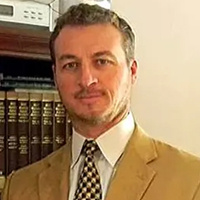Ft Warren Afb Juvenile Law Lawyer, Wyoming
Sponsored Law Firm
-
 x
x

Click For More Info:
-
Dion J. Custis, PC
400 East 20th Street Cheyenne, WY 82001» view mapCriminal Defense Law Skilled Counsel. Fearless Advocacy.
Our firm has a depth of experience that is hard to find anywhere else. Our lead attorney has fought passionately for the rights of his clients. You deserve a future.
800-979-2711
Not enough matches for Ft Warren Afb Juvenile Law lawyer.
Below are all Ft Warren Afb Criminal lawyers.
Dion James Custis
✓ VERIFIEDCriminal, Accident & Injury, Personal Injury, Car Accident, Felony
The Law Offices of Dion J. Custis, P.C. provides guidance with legal matters on all levels. I am a professional criminal defense attorney in Cheyenne,... (more)
Samantha Anne Daniels
Misdemeanor, Child Custody, Military, Family Law
Status: In Good Standing Licensed: 10 Years
 Dion J. Custis Cheyenne, WY
Dion J. Custis Cheyenne, WY Practice AreasExpertise
Practice AreasExpertise

